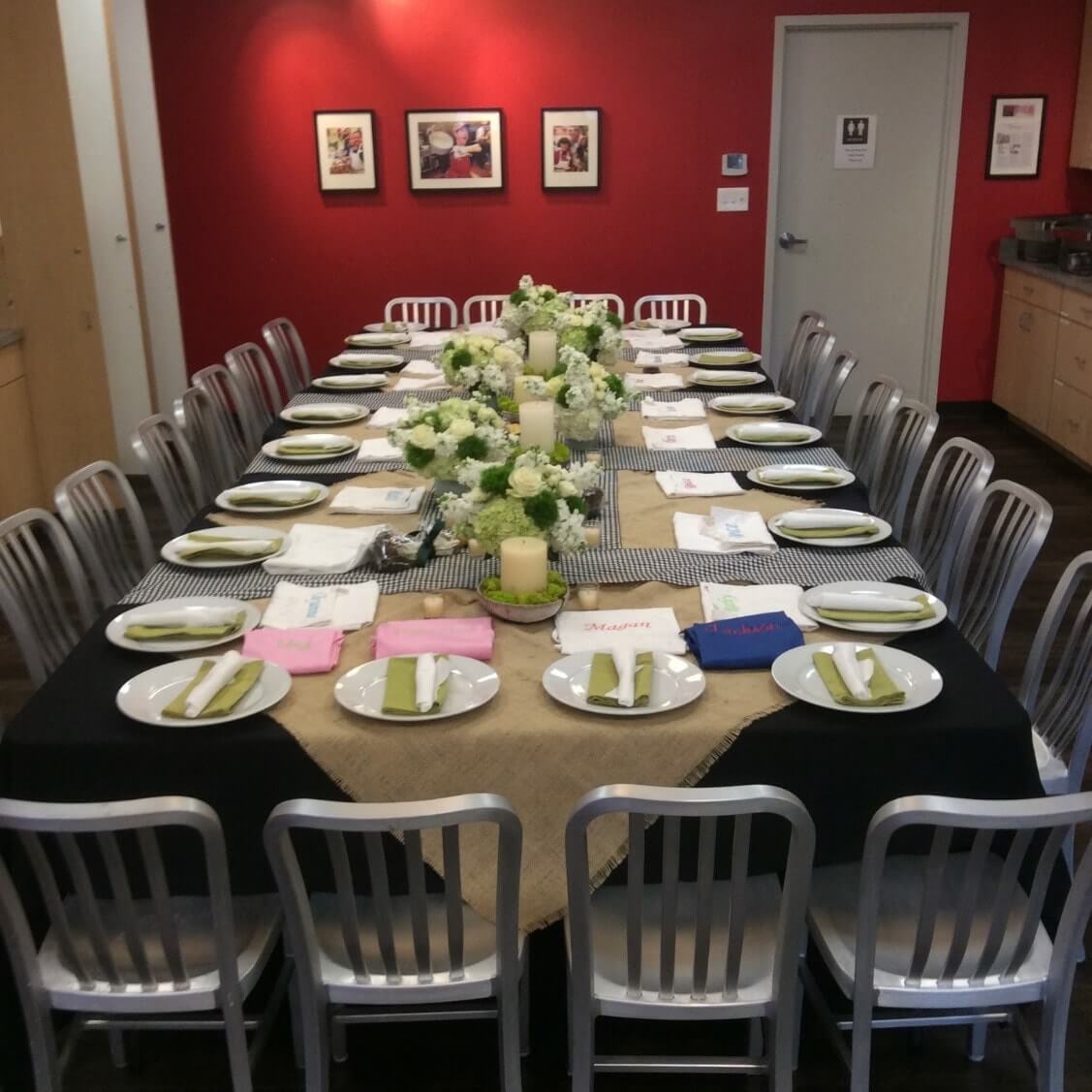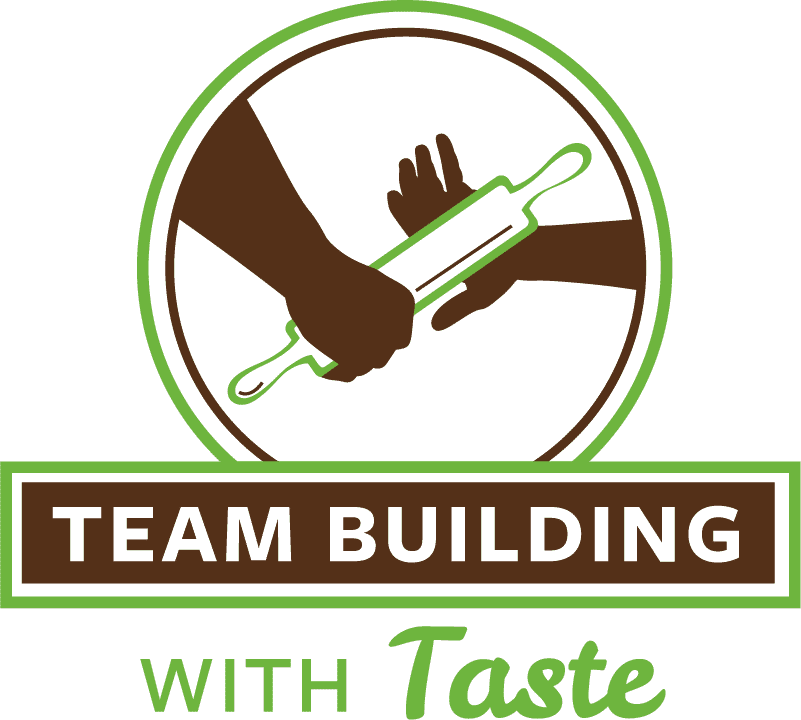How to Choose Team Building Events in Atlanta & Dallas

Here’s how to choose team building events in Atlanta and Dallas. With all the possible types of events, this step-by-step guide will help you sort out your options.
Step 1: Define the Objective for Your Team Building Event
First, decide whether you need to choose a team building event to improve the team relationship or whether you are trying to solve a specific problem. Team building events can be used for increasing team trust, building team communication, or integrating two new teams after a merger. Sometimes the goal of the corporate event is just to reward the team or to allow social time for the team members.
Step 2: Choose a Casual or Structured Event
If your goal is a social get together or a fun activity for your team, then a casual dinner event or sports outings like golf or bowling may be best.
But it’s different if you are looking for a specific behavior change. Behavioral research shows how trust and communication are the workplace values that contribute the most to productivity and worker satisfaction. The reference links below will help you understand why to include these values in your team building events.
Step 3: List the Behaviors that You Want to Change
Next, you should decide what you want to achieve from your team building exercises. Does your team need conflict resolution skills? Is there poor communication? Do office workers need to learn how to understand and communicate with other departments? Questions like these will help you determine your objectives for your team building event.
Step 4: Find an Event that is Suitable for Your Team
Corporate team building challenges can be tricky to plan. The activities need to be fulfilling, yet not too difficult. Competition can motivate a team, but the wrong environment can lead to a damaging experience. They also need to be approachable and largely accessible to the participants.
• Is the team event suitable for every team member’s personality?
• Will a physical team building event by too much for some of the older or less fit team members?
• Will a discussion workshop format put individual team members under pressure?
When done right, team building activities can really bring a team together.
Step 5: Make the Team Building Event Closing Meaningful:
To gain lasting benefits from your team event, take the time to assess what people have learned from the day. Help your team members discuss how they can use what they learned in their work situations. It helps to have each person consider a list of questions about the issues that they see occurring in the team.
• Before the team building event, ask team members individually to answer a few questions about team issues of communication, trust and collaboration. Then ask the same questions 2 weeks after the team building event.
• At the close of your team building event, ask your team members to talk about what they’ve learned about themselves and about the way that they interact with their coworkers.

Choose Team Building Events that are Best for Your Team
At the end of the day, team building activities need to be beneficial to each individual’s sense of the team, help people set aside differences for their common goal, and reinforce positive dynamics. So it’s important to choose a team building event that trains workers on values that they can take back to the work place.
You don’t want to provide a venue for people to take out their frustrations on others – like dodge ball or paintball. These sorts of high-competition, adrenaline filled scenarios can easily go awry and do more damage than good.
What’s difficult to account for in any team building challenge is the individual. Some people aren’t active, and would resent a multi-mile team hike, a ropes course or golf. Others may feel threatened or put on the spot in a workshop-type scenario, and close up instead of being open.
Now consider what positive values will guide your choice of a team building event. To chose the values that will build your business culture, we need to look at recent learning in team building research.

References to Help You Choose Team Building Events
It may seem like there is no possible way to account for all these variables when planning a team building challenge. To help you decide, here are some references to show you the team values that should be considered in a structured team building event.
What Team Building Events Develop Trust and Communication
8 Ways to Build a Culture of Trust Based on Harvard’s Neuroscience Research
Over his 2 decades of research, Paul J. Zak discovered that “compared with people at low-trust companies, people at high-trust companies report 74% less stress, 106% more energy at work, and 50% higher productivity. Harvard researcher Zak developed strategies for creating cultures of trust, which will create greater empathy among employees, and improve organizational behavior and performance.
• Recognize excellence.
• Induce “challenge stress.”
• Empower employees to choose their work patterns and habits. Autonomy over work conditions, which communicates to employees that their leadership trusts them.
Zak concluded that there are several benefits for those working in high-trust cultures:
• Were 70% more aligned with their companies’ purpose
• Felt 66% closer to their colleagues
• Experienced 40% less burnout from their work
The New Science of Building Great Teams
This case study reveals how research helped the manager at a major bank’s call center to learn why some of his teams got excellent results, while other teams struggled. MIT’s Human Dynamics Laboratory identified the group dynamics that characterize high-performing teams which far surpassed other teams. The research confirmed that communication plays a critical role in building successful teams. Patterns of communication are the most important predictor of a team’s success.
Analyzing the team’s communications showed that the best predictors of productivity were a team’s energy and engagement outside of formal meetings. The best way to build a great team is to guide the team so that the team follows successful communication patterns.
The best-performing and most creative teams in the MIT Human Dynamics Laboratory study sought fresh perspectives constantly, from all other groups in the organization. The best team players also connect their teammates with one another and spread ideas around.
High-Performing Teams Need Psychological Safety. Here’s How to Create It
Google’s massive two-year study on team performance revealed that the highest-performing teams have one thing in common: psychological safety, the belief that you won’t be punished when you make a mistake. Studies show that psychological safety allows for moderate risk-taking, speaking your mind, creativity, and sticking your neck out without fear of having it cut off — just the types of behavior that lead to market breakthroughs.
Team-Building with a Purpose
Team building has a reputation among some employees as a time-waster. You can stress the value of your teambuilding event that will help them reach specific goals for their team. By communicating the goal from the very start, employees will see the positive value of the event whether it’s rewarding and accomplishment, getting to know one another better or learning better communication or collaboration skills.
• Develop rapport and trust among a group of executives or new employees
• To get people out of the office and build their energy level
• If you have virtual workers or small offices across several states, you can use team building to open lines of communication among staff across the company
• Showcase the importance of customer service and communications
Teambuilding can be productive when it is undertaken with a sense of purpose and an understanding of how it will benefit employees. The most successful team-building activities will be explicitly linked back to participants’ jobs, and they’ll understand how skills developed can translate into workplace habits.
Cooking Competitions and Culinary Events in Team Building
Why Teams That Cook Together Work Better Together
Can channeling the adrenaline of Food Network’s Chopped or the constrained creativity of its Iron Chef, and the feedback loop of Bravo TV’s Top Chef bring teams closer and boost productivity? Three startup companies have adopted regular cooking get-togethers or cook-off competition events as a morale booster and as a way to encourage team building.
Three Questions With … Team Building with Taste’s Paul McKeon
In Atlanta, Team Building with Taste has served over 300 organizations in its four years. After drinks and appetizers, teams race against the clock to prepare a meal with a handful of twists thrown at them along the way – much like a true business environment. After pitching completed dishes and discussing team strategy with a panel of judges, teams have the opportunity to eat their dishes and talk about the process. Team Building With Taste is primarily a B2B solution that enhances collaboration and trust among employees to improve business performance.
Dunwoody Entrepreneur Turns Love of Food into a Team-Building Enterprise
At today’s most successful companies, where workers increasingly work collaboratively, business leaders know that team training based on corporate knowledge and job skills is just half the equation of building a successful workforce. The other half is team building, which consists of organized activities, usually provided by an outside firm, designed to enhance social relations within groups of employee teams.
The problem with most team-building activities is that they’re somewhat contrived and few make use of a universally shared interest that already exists among the employees. And that’s where food comes in. Sharing food is the one universal activity that can break down barriers and bring people together.
Why not treat your organization to a thrilling Iron-Chef cooking competition led by one of our fantastic chefs?

